
The Rightward Shift of U.S. Foreign Policy Didn’t Start with Trump
The recent confirmation of Mike Pompeo as Secretary of State by the Senate symbolizes that nationalist “hawks” dominate the Republican Party’s foreign policy. Even the famously non-interventionist Republican Senator Rand Paul supported his nomination. Pompeo’s quick and frictionless confirmation points to a shift to the right in what constitutes “common-sense” in US foreign policy. However, as this article will argue such changes in US foreign policy have predated Pompeo’s nomination and even President Trump’s election. Mike Pompeo, who came to Congress with the Tea Party movement in 2010, is an interventionist of the America-First variety. He desires strong sanctions on North Korea, Iran and Russia, supports extra-legal military strikes in areas of jihadist activity, and deeply distrusts China’s economic and …
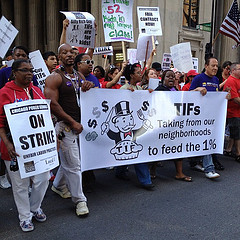
What Does the Chicago Teachers’ Strike mean for Obama and the Democrats?
Angry and extensive coverage has characterised last week’s Chicago teachers’ strike as a series of splits: children’s interests vs. teachers’ interests; ‘reform’ vs. ‘status-quo’; elites vs. the public. Whereas a majority of Chicagoans supported the strikers, much of the media coverage has been opposed. CNN’s coverage is a good example (seeNavarrette’s eye-popping statement that unions ‘protect teachers from public demands for…a better education for our children.’) The first two of these splits fit a long-standing trope in education policy from A Nation At Risk to No Child Left Behind. It is encapsulated in Terry Moe’s recent book ‘Special Interest’ amongst many others: the reformist demand for greater charter- or voucher-based choice and accountability, and opposition to teacher unions. But the most interesting split here is within the Democratic …
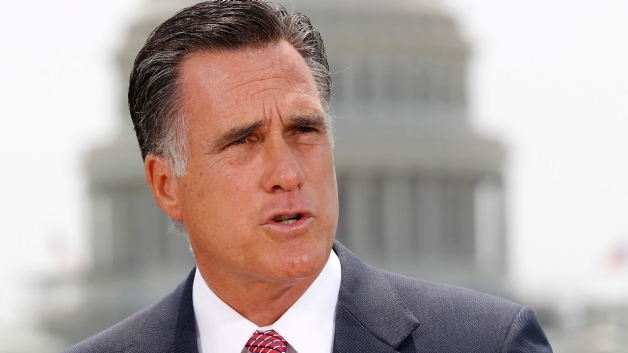
Forward to the Past: The Ideology of Romney’s Republicanism
‘President Obama has said that he wants to transform America. I don’t want to transform America; I want to restore the values of economic freedom, opportunity, and small government that have made this nation the leader it is.’ (4 April 2012, Remarks to the Newspaper Association of America) It is less than a hundred days until the election for the most powerful political office in the world, the President of the United States of America. The November election ‘will be a defining event’. Not said by the usual peddlers of political commentary and punditry, but by the Republican nominee for President, Mitt Romney. The US election of 2008 was monumental and arguably constituted a dramatic turning point in the political history …
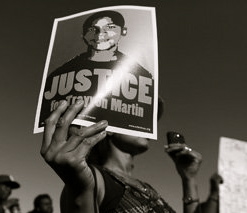
Questions of Inclusion: What the Trayvon Martin Case Reveals about Race in America
A Conversation with Rakim Brooks Background: On February 26, 2012, 17 year-old Trayvon Martin was shot and killed as he was walking home to his father’s house in a community in Sanford, Florida. Unarmed, Martin was seen carrying an iced tea and a bag of Skittles candy, when 28 year-old George Zimmerman opened fire on the boy, resulting in his death. Until yesterday, under the auspices of self defence and through the protection of Florida’s “Stand Your Ground” law, Zimmerman had not been arrested for a crime that the civil rights community insists was motivated by racial prejudice. Public outrage regarding the handling of the incident (no doubt including the decision not to arrest Zimmerman) resulted in the resignation of …
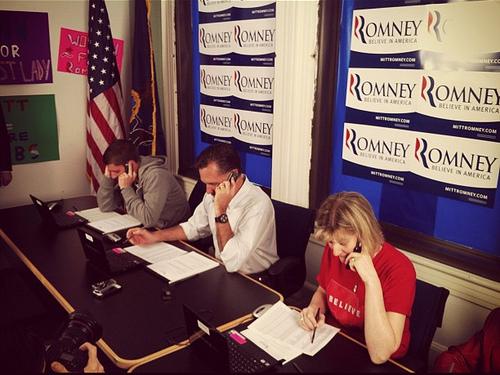
Next steps for Romney?
It continues to look like Mitt Romney will be the Republican candidate for President in the fall. While he is still fighting a war of attrition with Rick Santorum, it will take a major game changer for him to lose the primary. So it is no surprise that he is increasingly orienting himself towards the general election. What can the course of the campaign so far tell us about the challenges Romney will face and how he will try to tackle them? The drawn-out primary has been a mixed blessing, forcing Romney to cater to a conservative base out of touch with many Americans, forcing him to spend time and money battling right-wing rivals when he would have preferred to …

Oyez! Oyez! Oyez! Obama’s Heath Care Plan Hits the Supreme Court
The web is rightly abuzz with analysis of the Supreme Court’s impending consideration of the US Affordable Care Act, usually known as Obama’s health care bill. Today is the second day of oral arguments. Of the many interesting aspects of the case, the role of precedent stands out. Implicit in much of the discussion on which precedents the Court will follow is that precedent actually matters. I think it does; others think not. We shall see. The broader discussion is over whether the Court will be willing to strike such a major law on a weak legal case. The legal issue is whether the Commerce Clause of the U.S. Constitution — 16 words that grant Congress the authority to regulate ‘commerce …
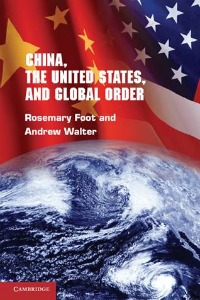
China, the United States, and Global Order: An Interview with Professor Rosemary Foot
Rosemary Foot is a Professor of International Relations and John Swire Senior Research Fellow at St Antony’s College, Oxford. She has been a celebrated China scholar since completing her doctorate at the London School of Economics on Sino-Soviet relations and West Asia. Here, Professor Foot takes a moment to speak with Politics in Spires regarding her most recent book. Congratulations, your latest book, China, the United States, and Global Order has been praised by Foreign Policy Magazine as one of the 23 Essential Readings of 2011. Could we begin with you telling us a bit about the efforts behind this work? The book was a collaborative effort.* My co-author [Andrew Walter] is a specialist in international political economy, and I …
What Obama didn’t say about Iraq
The Iraq war was not a success. It was a failure. A dismal failure, and Western governments should learn from their mistakes. Of course, nobody can deny the brutal crimes that Saddam Hussein was responsible for. The savage attacks against the Kurdish population in Northern Iraq, the invasion of Kuwait and the terrorising of innocent civilians in the town of Dujail after an assassination attempt serve as prime examples of the sadistic nature of the Iraqi dictator. The world is definitely safer without him, but this in no way outweighs what the world, and in particular the Iraqi people, have had to give up. Transparency International’s most recent Corruption Perception Index (measured in 2010) ranked Iraq as having 175th most …









